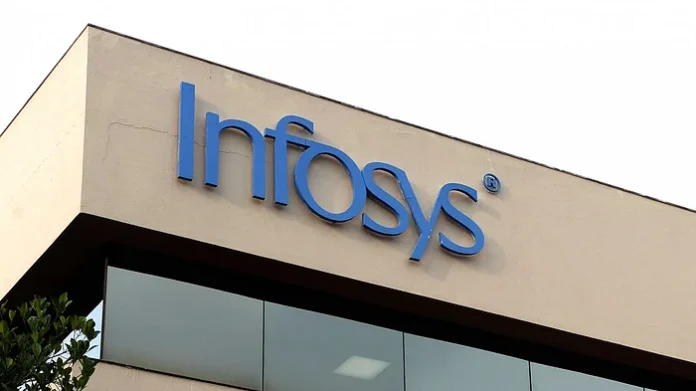1. Incident Overview
An alarming case of voyeurism surfaced on June 30, 2025, at Infosys’s Electronics City campus in Bengaluru. The accused, Swapnil Nagesh Mali, a Senior Associate Consultant in the Helix department, allegedly recorded videos of a female colleague inside a women’s washroom cubicle. The victim was a Technical Test Lead, present in the office on her designated hybrid workday. She noticed a suspicious reflection from an adjacent stall, only to discover Mali standing on the commode stall next-door using his mobile phone to film her in privacy reddit.com+5reddit.com+5timesofindia.indiatimes.com+5ndtv.com+5news.abplive.com+5financialexpress.com+5.
Upon raising an alarm, she was promptly assisted by fellow employees and HR representatives. Mali attempted to delete the footage and pleaded for forgiveness on the spot. However, HR secured his device, retrieving over 30 videos suggesting a pattern of repeated misconduct. The Bengaluru Police, alerted by both the victim and HR, arrested Mali under Section 77 (voyeurism) of the Bharatiya Nyaya Sanhita and Section 66E (violation of privacy) of the IT Act indianexpress.com.
2. The Arrest and Legal Proceedings
Authorities confirmed an FIR was registered on July 1, and Mali was duly taken into custody. His phone was sent to the forensic science laboratory to recover deleted videos and provide detailed data on the alleged victims ndtv.com. This technical analysis aims to reveal the scope and duration of his offenses.
The accused, aged around 28–30 and from Sangli, Maharashtra, had joined Infosys only three months prior to the incident reddit.com+9ndtv.com+9indianexpress.com+9deccanchronicle.com+15indianexpress.com+15reddit.com+15. He was reportedly caught in the act on a Monday around 11 AM, highlighting serious surveillance failures within the premises news.abplive.com.
3. Workplace Safety and Infosys’s Response
Infosys remains tight-lipped on public commentary but internally HR acted swiftly, restraining the individual and preserving evidence. Reports suggest an initial corporate bias towards an internal-only resolution. But it was the victim’s insistence — with support from her husband — that brought the case to law enforcement .
This incident has ignited urgent conversations about workplace safety, employee privacy, and surveillance protocols on tech campuses. Bangalore-based advocacy groups are urging Infosys to review:
- Washroom structural designs and security.
- Routine safety audits in hybrid-working environments.
- Improved awareness and training on reporting harassment.
4. Statistical Rarity and Privacy Violations
Though such invasive crimes are rare in corporate Bengaluru, any breach of privacy is a grave violation. The dual charges — voyeurism and IT privacy breaches — carry severe penalties, including imprisonment and substantial fines. The child-privacy violation is artifact both legally and socially unacceptable.
Beyond the offender, this case touches on larger themes:
- Psychological safety—how trauma affects victims, even in high-profile corporates.
- Trust degradation—employee confidence in safe workplaces may be shaken.
5. Broader Bengaluru IT Campus Context
This incident follows other past concerns:
- A Bangalore resident was earlier extorted for ₹3.7 crore by cybercriminals impersonating officials hr.economictimes.indiatimes.com+9reddit.com+9timesofindia.indiatimes.com+9news.abplive.com+1ndtv.com+1deccanchronicle.com+1newindianexpress.com+1.
- Infosys’s philanthropic arm contributed ₹33 crore to strengthen cyber-forensics with Karnataka Police hindustantimes.com+2indianexpress.com+2timesofindia.indiatimes.com+2.
These divergent events highlight the dual challenge faced by both employees and firms: ongoing protection—from internal misconduct to external cyber threats.
6. Culture, Accountability, and Structural Vulnerabilities
The incident raises deeper organizational questions:
a. Employee Vetting & Onboarding
To curb such risks, lockdowns on background verification and ethics training are under discussion.
b. Facility Design and Oversight
Open-plan offices may benefit from technological interventions such as restricted access controls and silent panic alerts.
c. Hybrid Work Oversight
Return-to-office mandates — likely 10 days/month — necessitate new safety protocols for those in unfamiliar work zones .
d. HR Escalation Mechanisms
Critics argue employees still fear speaking up, particularly when initial corporate responses favor quiet internal resolution.
7. Psychological and Legal Support for Victims
Supporting the emotional well-being of victims is critical. Bangalore-based legal experts and NGO-run counseling services emphasize:
- Allowing access to therapy.
- Clear channels for escalation and confidentiality.
- Training managers to handle complaints with sensitivity.
**8. What Lies Ahead? Systemic Change or One-Off?
The real test lies in Infosys’s proactive measures:
- Policy reforms: Extensive anti-harassment training, stricter bathroom safety rules, and modern surveillance technology.
- Regular audits: Use third-party reviews to assess campus security.
- Transparency: A public statement confirming steps being taken would help restore employee confidence.
Other Banglore tech firms may now mirror these actions, turning a disturbing incident into a wake-up call for corporate India.
9. Expert Voices
Legal analyst Anjali Rao commented:
“This is more than a privacy breach; it’s a fundamental violation of bodily autonomy in the workplace.”
Workplace psychologist Dr. Kavita Singh:
“Survivors often report feelings of violation long after the incident. Timely counseling can significantly help.”
10. Employee Reactions & Reddit Conversations
Reddit users in Bangalore have been discussing rising workplace pressures but voices of solidarity are dominating:
“Hope all women feel safe reporting things like this… bravery matters.”
While broader workplace stress complaints exist, cases like this are shaping fresh discourse on safety and dignity.
11. Implications for Corporate Bangalore
- Employee trust metrics will now factor in safety ratings.
- Facilities architecture must adapt for fully hybrid work schedules.
- Policy frameworks on privacy and reporting mechanisms now need to be reassessed, with frontline prevention as a priority.
12. Conclusion: Turning Crisis into Change
This disturbing incident exposes lapses in trust, design, and accountability at a top-tier workplace. But Infosys has an opportunity: a transparent, proactive response can set a new benchmark. Survivors deserve validation, not silence. Tech campuses must evolve—from open-space prestige to safe, secure spaces rooted in dignity.
Safeguarding women’s privacy is non-negotiable. This case should be the catalyst—not just for Infosys but all modern workplaces—to take substantial, lasting action.

